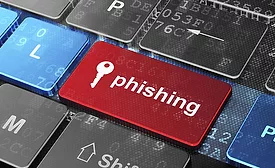Home » social engineering
Articles Tagged with ''social engineering''
As soft target telephone scams become more sophisticated, people are turning to protocols like biometric verification for enhanced protection. But implementation is key.
Read More
Sign-up to receive top management & result-driven techniques in the industry.
Join over 20,000+ industry leaders who receive our premium content.
SIGN UP TODAY!Copyright ©2026. All Rights Reserved BNP Media.
Design, CMS, Hosting & Web Development :: ePublishing












